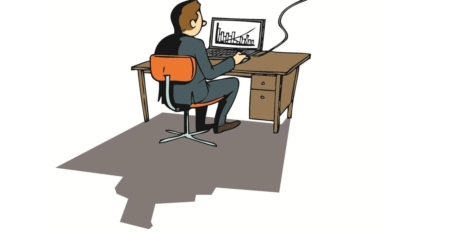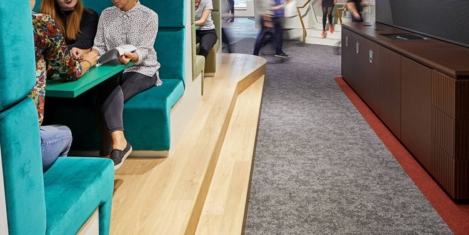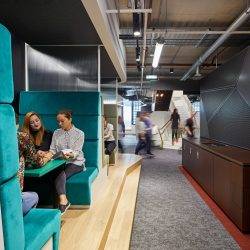To provide the best experiences, we use technologies like cookies to store and/or access device information. Consenting to these technologies will allow us to process data such as browsing behaviour or unique IDs on this site. Not consenting or withdrawing consent, may adversely affect certain features and functions.
The technical storage or access is strictly necessary for the legitimate purpose of enabling the use of a specific service explicitly requested by the subscriber or user, or for the sole purpose of carrying out the transmission of a communication over an electronic communications network.
The technical storage or access is necessary for the legitimate purpose of storing preferences that are not requested by the subscriber or user.
The technical storage or access that is used exclusively for statistical purposes.
The technical storage or access that is used exclusively for anonymous statistical purposes. Without a subpoena, voluntary compliance on the part of your Internet Service Provider, or additional records from a third party, information stored or retrieved for this purpose alone cannot usually be used to identify you.
The technical storage or access is required to create user profiles to send advertising, or to track the user on a website or across several websites for similar marketing purposes.
 Corporations are this year set to become the driving force within the flexible workspace industry as the way they view their office portfolios continues to change, according to research by Instant Offices. The flexible workspace sector has ridden the crest of a wave for the past five years with global demand increasing by 50 percent and more market supply of flex space than ever before. Instant now estimates the global market to incorporate 32,000+ centres, which represents 521 m sq. ft. This is an increase of 15 percent year on year since 2013.
Corporations are this year set to become the driving force within the flexible workspace industry as the way they view their office portfolios continues to change, according to research by Instant Offices. The flexible workspace sector has ridden the crest of a wave for the past five years with global demand increasing by 50 percent and more market supply of flex space than ever before. Instant now estimates the global market to incorporate 32,000+ centres, which represents 521 m sq. ft. This is an increase of 15 percent year on year since 2013.


































February 17, 2019
Landlords must respond in new ways to the changing world of work
by Ben Gillam • Comment, Technology, Workplace design